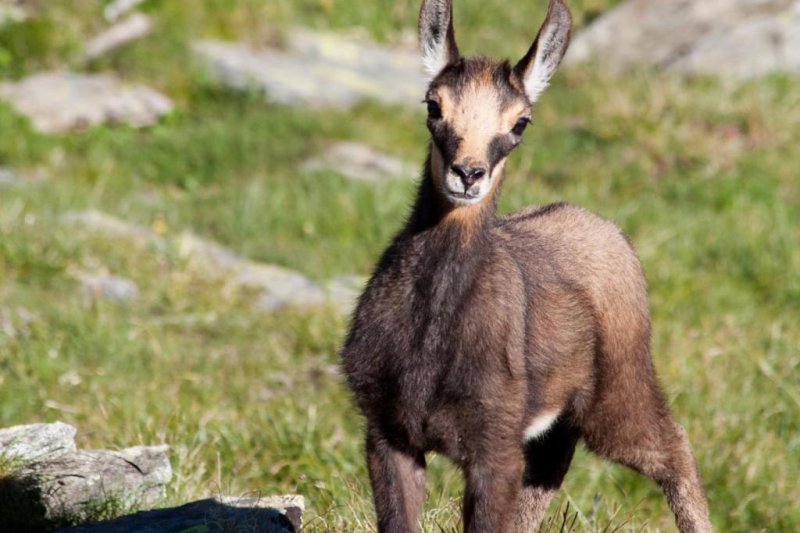A juvenile Chamois, a species of alpine goat that populates the mountains of southern Europe. (Durham University/Tom Mason)
DURHAM, England, Oct. 22 (UPI) -- Animals shrinking in size and mass isn't exactly new. In recent decades, scientists have observed an inverse relationship between animal size and temperature averages. As global temps go up, size goes down -- in animals ranging from salamanders to sheep, from red deer to red-winged blackbirds.
A new study suggests the size of one species has been particularly affected by global warming. Over the past 30 years, the Alpine Chamois, a species of mountain goat in Europe, has shrunk considerably -- its reduction in size and mass having happened faster and more dramatically than others. Researchers found that young Chamois weigh 25 percent less than their counterparts from the 1980s.
"Body size declines attributed to climate change are widespread in the animal kingdom, with many fish, bird and mammal species getting smaller," study author Tom Mason, a biologist at England's Durham University, explained in a recent press release. "However the decreases we observe here are astonishing. The impacts on Chamois weight could pose real problems for the survival of these populations."
Previous studies have suggested species -- particularly herbivores -- shrink in the face of warming temperatures because food is less abundant and nutritious, and because warmer temps encourage faster metabolisms. But researchers observing the Alpine Chamois found little change in the quality or size of their grazing areas. Instead, the scientists believe the animals' changing behaviors are driving their reduction in size.
"We know that Chamois cope with hot periods by resting more and spending less time searching for food, and this may be restricting their size more than the quality of the vegetation they eat," study co-author Stephen Willis said. "If climate change results in similar behavioral and body mass changes in domestic livestock, this could have impacts on agricultural productivity in coming decades."
Mason and Willis say it's not clear what the long term impact of an animal's shrinking size is on the health of the species as a whole. But better understanding the interplay between animal size, climate change, population size, vegetation health, etc. can help biologists predict and prepare for the ecological consequences of global warming.
"It is vital that we continue to study how climate change affects species such as Chamois," Mason added. "Changes in body size could act as early-warning systems for worse impacts to come, such as the collapses of populations."
The study on shrinking Chamois goats was published this week in the journal Frontiers in Zoology.















